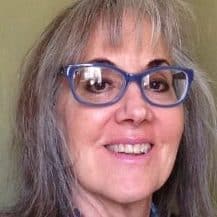In an effort to muster civic engagement, the Truth or Consequences City Commission made changes in how its regular meetings will be conducted.
The changes come with Gary Whitehead becoming city manager a little more than a month ago.
First, the city invested about $30,000 in installing better audio/visual/microphone equipment after four years of having no online streaming meetings and then having the city clerk set up a smart phone that streamed meetings on Facebook for the last three months.
The Facebook audio picked up city commissioners’ voices on the dais, since the phone’s microphone and camera were directed towards them, if they exerted themselves to speak clearly and directly into the mic. But speakers and presenters at the podium facing the dais could not be heard via the Facebook stream. Streamed meetings on Facebook should be greatly improved with new equipment.
Whitehead mentioned, in a prior meeting, that a YouTube channel streaming meetings is a possibility. The city had a YouTube channel for about five years, ending around 2020.
Hopefully sound will also be improved for citizens attending meetings in person. For years people have complained about city-chamber microphones at the dais, podium and side table where the city attorney, assistant city manager and city finance director sit. Many people stated at the mic that they were leaving after giving public comment for home, where they could hear the meeting on KCHS. That radio station was sold last fall, and no longer broadcasts the city meeting.
City Clerk Angela Torres said, at the Feb. 26 meeting, the new equipment will be installed by the March 12 meeting. The new screen, on which documents and presentations are projected for the audience, was already installed, Torres said, noting how much sharper the image was.
Second, Mayor Rolf Hechler announced at the beginning of the meeting, when public comment is scheduled on the agenda, that going forward those wishing to speak at the podium for three minutes must first fill out the sign-in sheet before the meeting starts.
No longer will Hechler ask if anyone else wants to speak who has not signed in. It is difficult for the city clerks to capture names and addresses of speakers for the meeting minutes, which must be given first before commenting.
The sign-in requirement will probably apply for public hearings as well. There are usually two or more sign-in sheets on the table to the right of the city chambers’ door, one for public comment and one for each public hearing. During public hearings each person may give five minutes of testimony.
Public hearings are held on proposed ordinances, which are local laws, or major purchases, or capital projects, or major actions, such as approval of the yearly budget. Unlike public comment, public-hearing testimony establishes a record whether the people are willingly or unwillingly being subjected to laws or policies by a city commission who has made decisions based on evidence and study or if their decisions are frivolous and without merit. Such hearings records are key to any lawsuits filed.
Third, the city commission amended its Open Meetings Act resolution, which state law requires be passed yearly, which, in part, states the times of meetings.
The city holds its regular meetings the second and fourth Wednesday of the month. It was holding both meetings at 9 a.m. Now the first meeting will be held at 9 a.m. and the second at 4 p.m.
Only the first meeting of the month will have public comment on the agenda, Whitehead said. The first meeting will also have city-director reports, five directors reporting each quarter, he said. The city commissioners will also only give reports during the first meeting of the month. “This should get meetings down to two hours,” Whitehead said.
City Commissioners Merry Jo Fahl and Destiny Mitchell said they didn’t want to give up their evenings and afternoons. City Attorney Jay Rubin also expressed a dislike of late-afternoon meetings that may go into evening and nighttime. His staff would be gone and not available to look up information, as they are called upon to do during their daytime meetings.
City Commissioner Ingo Hoeppner suggested that the 9:00 a.m. meetings could stay in place if special meetings were held once a quarter for “big issues,” later in the day. None of his fellow commissioners responded to that suggestion.
Mayor Pro Tem Amanda Forrister said some of the current city commissioners are not going to run again for office, without naming them. Working and younger candidates may run, Forrister said, if they only had one meeting a month in the morning, “which is difficult, which I am learning to appreciate,” having recently taken on new employment, also not named.
A few commissioners, in prior meetings, said late-afternoon meetings may attract more members of the public, since many work until 5 p.m., but who might take off an hour early to attend city meetings once a month.
Fahl said, “it’s been tried in the past and it didn’t work.”
The rest of the commissioners, Hechler, Forrister, Mitchell and Hoeppner, agreed to “try the split times” until July, when the annual OMA resolution must be passed again. The four voted “aye” and Fahl voted “nay,” the meeting-times amendment passing.


Great news all around. Chance for chance for new leadership, in addition legitimate pubic access and input meetings. The others times and set up were a scandalous joke to keep Us from participating.